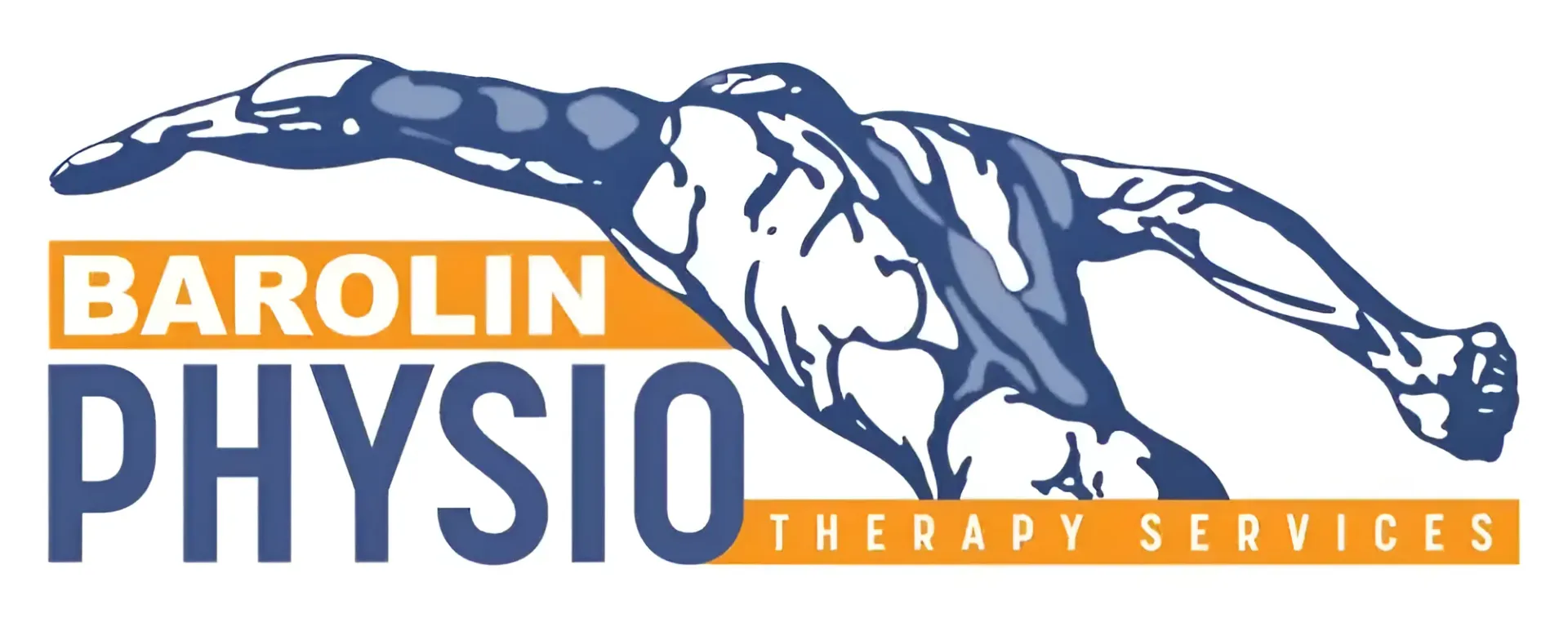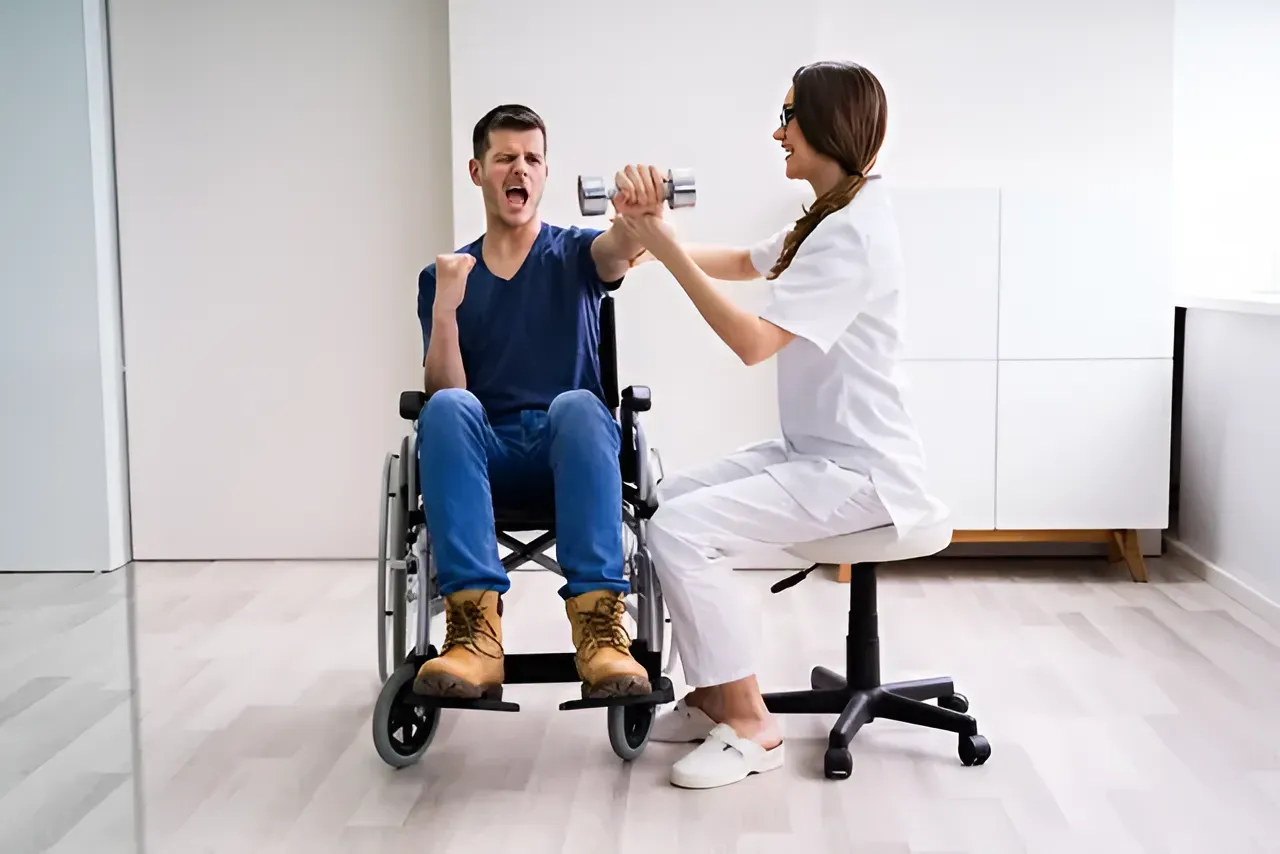Physiotherapist NDIS Registered
Now Welcoming New Patients — No Referral Needed!
20+
years supporting locals
100%
locally owned clinic
7+
specialised services offered
2
on-site physiotherapists
Registered NDIS Provider
Our physiotherapists provide a range of services to improve function, quality of life and reduce pain. Our client-centred and goal driven approach ensures that we work closely with you determine your needs. We work with NDIS participants to across a range of neurological, chronic pain and mental health conditions. Together, we aim to make a difference in your life to improve your quality of life and get the most out of your life.
What do we help with?
- Neurological — multiple sclerosis (MS), Parkinson’s, amputees, brain injury, stroke, motor neuron disease (MND), Guillain-Barre Syndrome (GBS), Autism (ASD), intellectual disability, cerebral palsy (CP)
- Chronic conditions — diabetes, chronic pain
- Mental health
- Development delay
For personalised NDIS physiotherapy solutions in Bundaberg, consult with Barolin Physiotherapy Services to discuss your tailored care plan. You can reach our clinic on 07 4153 4333.
Frequently Asked Questions
What is NDIS Physiotherapy?
NDIS Physiotherapy refers to physiotherapy services that are funded by the National Disability Insurance Scheme (NDIS) to support individuals with disabilities. The goal is to help participants achieve their rehabilitation and functional goals, such as improved mobility, reduced pain and enhanced quality of life.
Who is eligible for NDIS Physiotherapy?
Eligibility for NDIS Physiotherapy is determined by the NDIS criteria, which generally require that the individual has a permanent and significant disability affecting their mobility or motor skills. Once eligible for NDIS, a meeting with a planner will be scheduled to set up a personalised plan, which may include physiotherapy services.
What kinds of treatments can I receive?
Under NDIS Physiotherapy, the scope of treatments is designed to meet your specific needs. Here are common treatments:
- Exercise Programs: Custom exercise plans aim to improve muscle strength, coordination and flexibility.
- Manual Therapy: This includes hands-on techniques like joint mobilisations and soft tissue work.
- Gait Training: Specialised exercises improve your walking and balance.
- Pain Management: Techniques like electrotherapy or dry needling can be used to manage chronic or acute pain.
- Respiratory Techniques: Breathing exercises and techniques are employed for those with respiratory issues to improve lung function.
- Neurological Rehabilitation: Specialised exercises and techniques target functional independence in conditions like stroke or multiple sclerosis.
- Equipment Prescription: Assistive devices like wheelchairs or orthotics can be prescribed based on your specific needs.
- Functional Skills Training: Focused on activities of daily living, this helps you achieve greater independence.
- The treatments aim to fulfill your NDIS plan objectives and improve your overall quality of life.
What types of physiotherapy services are covered under the NDIS?
NDIS funding can cover various physiotherapy services aimed at improving mobility, managing pain, and supporting daily living for individuals with disabilities. These services can include exercise therapy to improve strength and flexibility, joint mobilisation to address stiffness, and soft tissue massage to help with muscle tension. Gait training to improve walking and balance, neurological rehabilitation, and pain management techniques such as electrotherapy and dry needling are also commonly available.
How do I know if I am eligible for NDIS physiotherapy funding?
Eligibility for physiotherapy funding under the NDIS is determined based on meeting the program’s criteria, which generally require a significant disability affecting movement or motor skills. Once eligibility is confirmed, a planning meeting is conducted to create a personalised support plan. This process can help ensure that the services included align with the participant’s specific needs and goals.
Are your physiotherapists registered providers under the NDIS?
Physiotherapists offering NDIS-funded services are often registered with the program, meeting all required standards to deliver care within the NDIS framework. Registration helps ensure that the care provided aligns with the necessary guidelines and supports the individual needs of participants. Consult our physiotherapists, NDIS registered, for assistance.
Enquire Now
Thank you for contacting Barolin Physiotherapy Services.
We will get back to you as soon as possible.
Oops, there was an error sending your message.
Please try again later.
How Can We Help?
- Exercise therapy to improve strength & mobility: Exercise therapy is a cornerstone of physiotherapy that aims to enhance physical capabilities through a carefully curated set of exercises. Depending on your needs, the regimen may focus on aerobic training, resistance exercises or flexibility work.
- Joint mobilisation to assist movement & reduce stiffness: Joint mobilisation is a manual therapy technique that involves the passive movement of specific joints using varying degrees of force. This treatment modality is especially beneficial for patients experiencing joint stiffness or limited range of motion.
- Soft tissue massage to relieve muscle tightness & soreness: Soft tissue massage is a therapeutic technique that targets muscle groups, tendons, ligaments and fascia to relieve tension and improve circulation. This can be particularly effective in alleviating chronic muscle tightness, reducing post-workout soreness and accelerating the healing process after an injury.
- Improve coordination & balance: Improving your coordination and balance is crucial for daily activities. Through specific exercises and training regimes, physiotherapy can sharpen your proprioception — the sense of self-movement and body position.
- Equipment prescription: Prescribing the right equipment is integral to optimising your physiotherapy experience and can make a significant difference in treatment outcomes.








